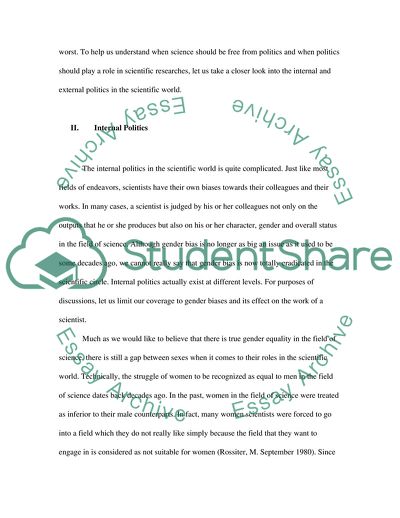Cite this document
(Connection of Science and Politics Coursework Example | Topics and Well Written Essays - 2500 words, n.d.)
Connection of Science and Politics Coursework Example | Topics and Well Written Essays - 2500 words. https://studentshare.org/politics/1710507-should-science-be-kept-free-from-politics
Connection of Science and Politics Coursework Example | Topics and Well Written Essays - 2500 words. https://studentshare.org/politics/1710507-should-science-be-kept-free-from-politics
(Connection of Science and Politics Coursework Example | Topics and Well Written Essays - 2500 Words)
Connection of Science and Politics Coursework Example | Topics and Well Written Essays - 2500 Words. https://studentshare.org/politics/1710507-should-science-be-kept-free-from-politics.
Connection of Science and Politics Coursework Example | Topics and Well Written Essays - 2500 Words. https://studentshare.org/politics/1710507-should-science-be-kept-free-from-politics.
“Connection of Science and Politics Coursework Example | Topics and Well Written Essays - 2500 Words”. https://studentshare.org/politics/1710507-should-science-be-kept-free-from-politics.


